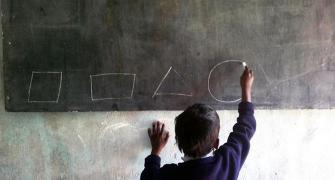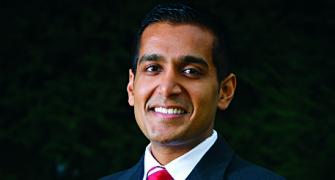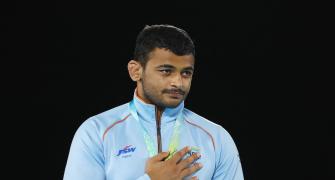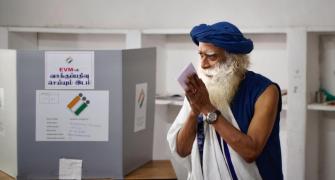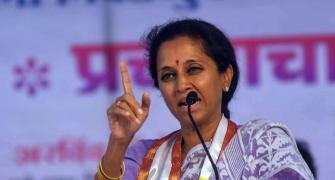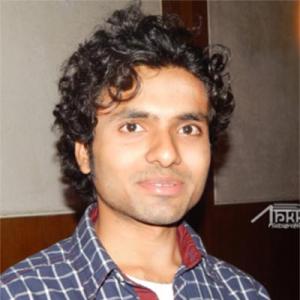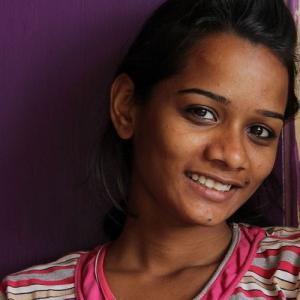Nandita Shetty, a medical electronics professional was growing tired of her corporate job in Boston.
She wanted to do something that will change the future of India.
What she did next will inspire you too!
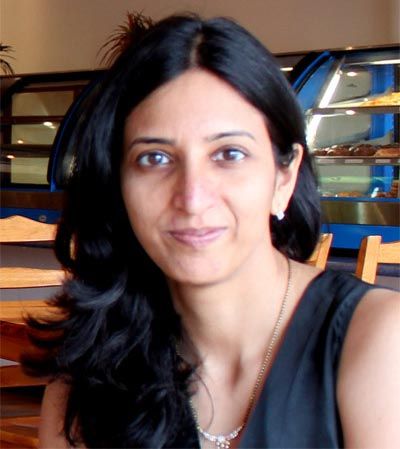 Nandita Shetty left an exclusive job in Boston behind and moved back to India to participate in the growth story of this country.
Nandita Shetty left an exclusive job in Boston behind and moved back to India to participate in the growth story of this country.
She has extensive research experience working at Massachusetts General Hospital (MGH) at Harvard University in Boston.
But a sudden impulse to give back to the country brought her here to spend time with an NGO in Uttar Pradesh.
Following this, she enrolled herself in the Stanford Ignite programme, and was convinced to take the entrepreneurial plunge and build something lasting in India.
Tell us about your educational background.
My background is primarily in healthcare but I have multiple interests and have delved into more than one domain.
I started out as a software engineer at Philips Medical Systems, Bangalore, after I finished my undergraduation in Medical Electronics.
After a year, I got bored of converting pre-specified requirements to code and decided to pursue my Masters in Biomedical Engineering in Texas.
During this time, I got very interested in R&D and the brain.
After I completed my masters, I worked as a neuro-imaging researcher at Massachusetts General Hospital (MGH)/Harvard University in Boston.
My research involved studying the developing brain using imaging and computation methodologies, and understanding why the brain in children with autism is structurally and functionally different.
At MGH, I worked with some of the best scientists in the world, including those who invented cutting-edge imaging technologies.
My experience here was absolutely incredible and it significantly influenced my thought process and approach to problems.
After five years at MGH, I once again felt the urge to move on.
I moved back to India to get my hands dirty with grassroot problems and volunteered for a year in a remote village in Uttar Pradesh at a non-profit called Pardada Pardadi Educational Society.
I later joined Invictus Oncology, a Delhi-based biotech start-up, founded by a Harvard professor.
My role was that of a Business Development Manager.
A year later, in 2013, Stanford Ignite happened and it’s a whole new story post the programme.
What brought you back to India from Boston? Why did you plunge into entrepreneurship?
It was quite impulsive actually! I loved what I was doing but I wanted my work to directly impact people/patients.
I have also been very interested in the development sector and have tried to do my bit wherever and whenever possible.
It so happened that I attended a talk by Virender (Sam) Singh, founder of Pardada Pardadi Educational Society (an NGO based in Anupshahr, Bulandshahr district, Uttar Pradesh), at the MIT-India club.
Those 60 minutes of how a retired, DuPont South Asia head returned to his village and set up an organisation so incredibly amazing with new programmes and concepts being developed based on the changing needs of the society, got me so excited that I decided to take a year off and volunteer at his organisation.
Within four months of meeting Sam, I left Boston to work in one of the most notorious districts in Uttar Pradesh.
Living in the village, seeing how poverty affects a community, working with the local villagers and students, and seeing my work create an impact was one of the best experiences ever.
What made you enroll at the Stanford Ignite programme?
After I completed my year at Pardada Pardadi Educational Society, I joined the Business Development (BD) team at a Delhi-based start-up, Invictus Oncology.
I really loved working in a non-scientific role, and being part of a team that was translating a medical break-through into a usable product.
Wearing multiple hats, having brainstorming sessions with highly driven and motivated colleagues was very exciting.
It was in the middle of all this that I chanced upon the Stanford Ignite programme and saw it as a great opportunity to hone some of my skills.
The curriculum featured all the aspects I wanted to wrap my brain around and the length of the programme was ideal as well.
This prompted me to apply to the programme.
I was not only selected, but also received a fellowship to attend the programme.
What did you do after that?
Stanford Ignite gave me a wonderful opportunity to think afresh and constructively combine my multiple experiences.
Having had a diverse exposure across cutting edge scientific research, the development sector as well as a start-up environment, and being at a stage where I was trying to envision how I wanted to create an impact here on, I was able to relate to literally everything covered in the programme.
The best part about the programme was the class diversity -- it was absolutely incredible to hear and understand everyone's thought process, which brought in completely different dimensions to problems and situations as we progressed with the course.
The other great aspect of the programme was its pace -- when I first looked at the course details and the duration, I kept wondering whether we would be rushed through the different subjects. But that never happened.
We were taught by some of the best MBA faculty of the Stanford Graduate School of Business and got good grasp of the concepts discussed.
Lastly, I must mention that although quite intensive, the programme is structured extremely well.
Tying business concepts with team venture projects was a brilliant way of going through the various elements of entrepreneurship.
The Stanford Ignite programme has been quite an influence on me. For someone who’s so incredibly passionate about healthcare, it sparked the entrepreneur in me and gave me the confidence to chase my other passion – food.
Tell us more about your start-up?
Interestingly, the start-up that I am working on is a direct outcome of the Stanford Ignite programme.
What started out as a one-minute pitch to the class and a team project has become a full-fledged venture, and is now inching closer towards a formal launch!
Like I mentioned, I am now pursuing another passion of mine: food.
The venture is about creating interesting concepts in food formats and dining experiences and we are going to be operating in NCR to begin with.
The best part is that two of my co-founders are people I met at the programme -- Rohan Rajgarhia, who is a Stanford alumnus and was a mentor on our team project during the Stanford Ignite programme, and Vasanth Kamath, who was my classmate and also a team member at the programme.
What is your ultimate goal and vision?
This has certainly changed post the Stanford Ignite programme.
I am a little more ambitious now and am better positioned to network and get people excited about my work and ideas.
I can’t specify at this point what my ultimate goal and vision exactly is but I do know that whatever I do is going to be passion driven and with a vision to make a meaningful impact.
What advice do you have for people considering the Stanford Ignite programme?
Ask anyone who has been part of the Stanford Ignite programme and I am sure they will echo what I say -- it's a roller coaster ride; it just pumps you up and leaves you feeling like a shaken can of soda.
If you have an idea and are wondering how to take it from the bench to business or if you are interested in getting a flavour of entrepreneurship or intrapreneurship, this is a course for you.
It's undoubtedly a great experience to go through.
However, I should also mention that you need to invest a considerable amount of time to maximise what you can take from the programme, so I would recommend considering the programme only if you feel you are ready for it at this point and you can commit the time -- not only for the sessions, but also for all the assignments and project work.
Photo Courtesy: YourStory.com



